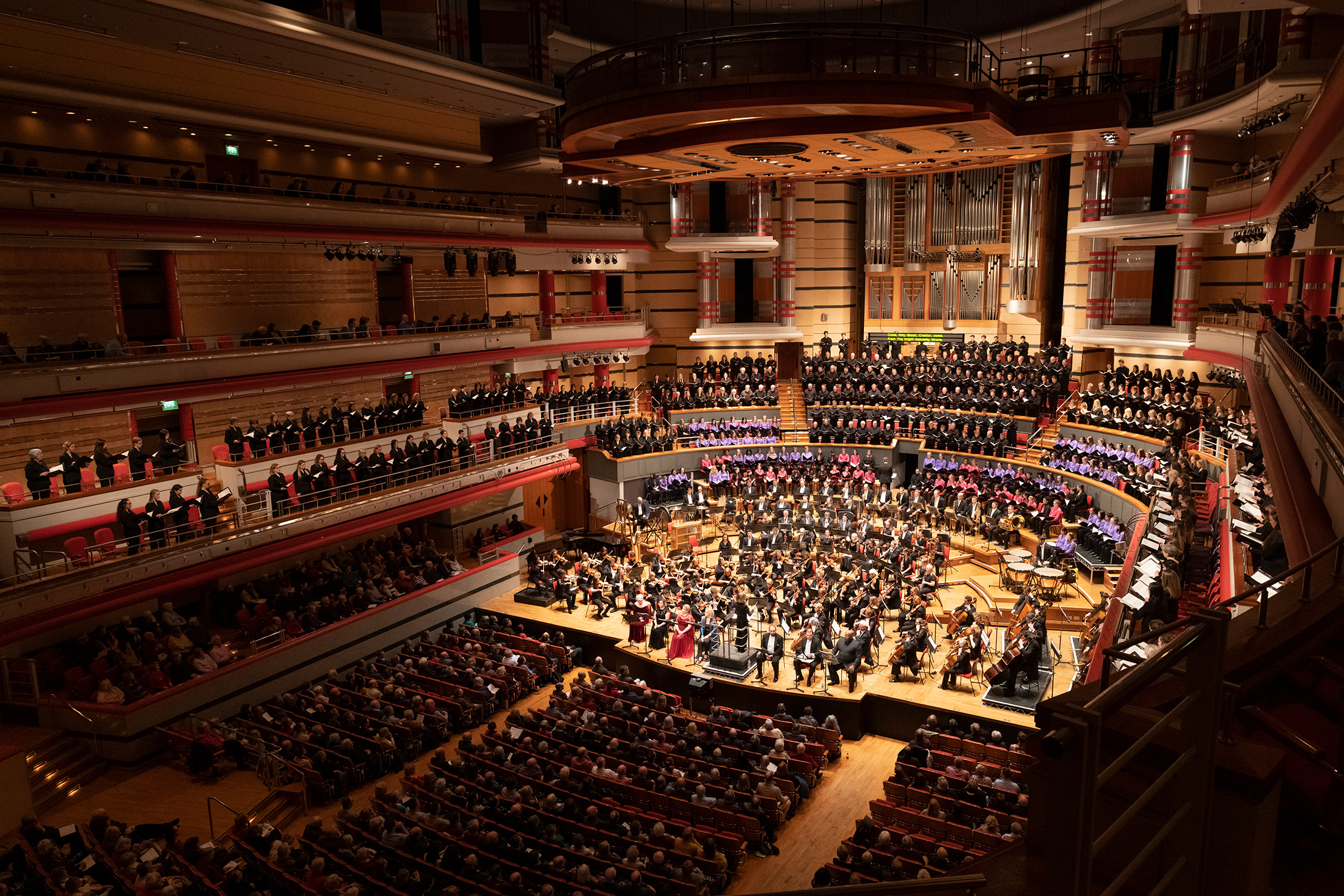My latest musical squeeze is inspired by the NDR Philharmonie/Manze Beethoven extravaganza I wrote about in the previous post.
Vaughan Williams 5 (and 6) from the RLPO conducted by Manze released 18 months ago demonstrates the conductor’s love of detail which, coupled with similarly forensic production techniques, brings out silky smooth string textures, ensemble staccatos that gently but efficiently puncture the score like a staple in a 50 page document, and precision pianissimo articulation that brings me out in goosebumps all over.
The third movement lento is a particular favourite – what sounds like a love letter to someone that triggers a sense of pride, warmth, and solidity. The woodwind tuttis are the kind of creations that make me want to reach for my clarinets and find the nearest band with VW 5 in its music pad. The cor anglais is to die for. A ravishing thing.

I hear the third movement as roast beef, stinging nettles, ploughed fields, and hedgerows. It’s not sentimental or nostalgic. The character isn’t easy to read at first, but its the complexity that makes that character beguiling. Introverted for sure. There’s a whiff of self-doubt in there somewhere. But, on the whole, the character holds his or her head high throughout, self-belief growing with every dynamic swell in the score. There’s a sense of hope stitched into the score that elevates the mood, building on that innate personal resilience. And come the final almost imperceptible chords there’s a hint of resolution, as though something has been aired or laid to rest.
Questions questions questions
And there in lies the answer to the year-long question I’m posing myself: where, when and why do I interface with the art form? What effect does it have on me? And what does that say about my mood or my needs?
In the case of VW 5 even as a whole, it appeals right now because of it’s relative newness to me. I’m sure I’ve heard the work before, but I wouldn’t have been able to recall it. Hearing it this week in a recording that leads on detail and texture, it is the immediacy of the writing that appeals the most. It as though VW’s score is written in a ‘clean’ musical language that surfaces nuanced and sometimes conflicting emotional responses.
The optimism that exudes the work, coupled with that experienced discovering and responding to it over the past 48 hours is tinged with an observation about the way we talk about classical music, and the way those who talk about it talk to one another.
Over the past few months I’ve connected with a variety of organisations that seek to reach out to newcomers – online, on-air, and via the live concert experience. Common to all of these connections is the pervasive view that classical music is like a prickly bramble to the uninitiated. And beyond classical music, the idea that a deeper appreciation of music as a whole – how it works and it’s effect on us – is anathema to achieving the widest reach.
I see it in pop and rock music too. I’ve spent twenty two years living with a serious music lover whose gateway is lyrics and who revels in country, rock, and musical theatre. It’s not unusual for the pair of us to spend a long Friday night listening to comparative recordings of Sondheim’s Sunday in the Park, for example. Different recordings bring different insights, forging different personal connections both with the music and with another.
Avoid detail at all costs
I am beginning to wonder whether this is the exception to the rule; that the vast majority don’t consume music in this way; that to acknowledge the impact music has on us is to set us apart and even unwittingly elevate people like me from the masses.
Is that how a love of music in all its constituent parts is seen by others? I fear it is. And if it is, one wonders whether there’s much point in trying to advocate the artform as a map accompanying a journey exploring the self.
Put another way, how do point people from music as entertainment towards the place where music has a deeper impact on the soul? Or at least point them in the direction of where music can have a deeper impact on the soul?
This isn’t a question of good and bad music (whatever that means) or making a value judgment of one genre of music or other. All genres have the potential to touch the heart in the way that VW5 has done on me this week (just in other ways for other music heard by other people). But there is undoubtedly a resistance to go deeper.
To go deeper is to hint at superiority it seems. That saddens me a great deal. Because that means the bigger challenge isn’t about writing about a particular genre in a ‘more accessible way’ in order to avoid ‘alienating the audience’. It means that the challenge is to support consumers of music as they understand the impact their chosen music has on them at a particular time. No one seems able or willing to do that.
The view from the steering wheel
Those that do feel comfortable discussing music in these terms find themselves in the middle of a culture war. No surprises really. That culture war is going on everywhere. That’s why its a culture war. Viewed from my metaphorical steering wheel, I see some questioning whether those with privilege dead or alive have the authority or right to advocate the value of music education for all. Some even question whether advocating music education for all is to deny the greater need of a ‘fair’ education for all. I’m a rabbit caught in the headlights when I consider the permutations for this particular question.
On the other side of the steering wheel I see commentators still arguing the toss amongst themselves about who is the authoritative source regarding the commentary on music. Some journalists under threat from a dwindling editor’s budget (because no one will pay for content) continue to posit that the unpaid self-publishing writer cannot be compared to the proper paid journalist in terms of knowledge, experience or connections. The ‘amateurs’ respond (understandably) indignantly. Just at the time when you’d think we’d all be united, the cheerleaders paid or otherwise are eating one another alive.
Warning: two metaphors in one blog post
I’m mindful of expressing any stronger view than that. Those who know me well will know what part of the fence I sit on and, given that the undergrowth below looks a little rough underfoot with a great many nasty looking barbs, I’m inclined to remaining sitting where I am. But what I see seems on the one hand utterly ridiculous, and the other infuriating. Everyone who talks about the way we talk about music adopts a defensive stance whenever anyone celebrates detail or dares to look under the bonnet. Expertise and passion has been demonised.
One can either argue each point (where did that get us over the past four years?) or we can go back to the core offer: the music. As I write VW5 is drawing to a close. A final call from the woodwind is passed on the strings.
The last few bars of harmonics in the first violins underpinned by a pillow of violas, cellos and basses leads to a conclusion: being resolute, and living true to our personal values is the best we can possibly hope for. Maybe, just maybe, like-minded souls will join us.


